Search
Search Results

Image
Central Gate & Pagoda, Horyuji Temple
The Chumon or central gate and five-storey pagoda of the Buddhist temple Horyuji, Nara, Japan. It is the most important Buddhist temple in Japan and was first built in 607 CE by Prince Shotoku during the Asuka Period. The temple was destroyed...
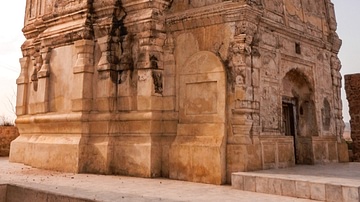
Image
Sath Graha Central Temple
The main central temple at the Sath Graha section of Katas Raj, Chakwal, Punjab, Pakistan, an ancient Hindu site dedicated to the worship of Shiva and prior to that a Buddhist site as well. This particular building is dated approximately...
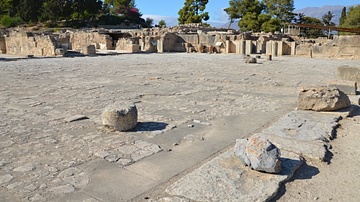
Image
Central Courtyard, Phaistos, Crete
The Central Courtyard and East Apartments of the Minoan Palace of Phaistos, Crete (2000-1400 BCE).
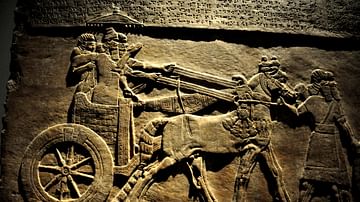
Image
Alabaster Panel from the Central Palace of Tiglath Pileser III
This alabaster panel was part of the decorative scheme of the palace of King Tiglath Pileser III (reigned 745-727 BCE) at Kalhu. The king is shown in his chariot, while in another scene above Assyrian soldiers drive out prisoners and flocks...
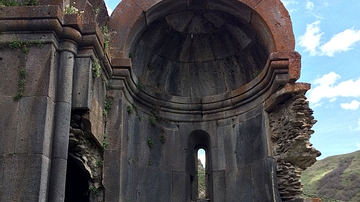
Image
Arates Monastery in Central Armenia
Arates Monastery in Armenia is built on top of a hill and overlooks the Arates tributary of the Yeghegis River. The monastery's name came from the combination of “ari” ("come" in Armenian) and “tes” ("see" in Armenian). The group of half-ruined...
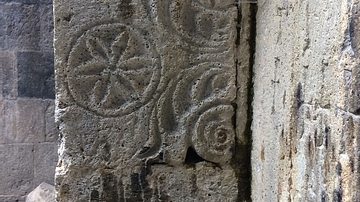
Image
Artistic Decor in Arates Monastery in Central Armenia
The Arates Monastery in Armenia is built on top of a hill and overlooks the Arates tributary of the Yeghegis River. The monastery's name came from the combination of “ari” ("come" in Armenian) and “tes” ("see" in Armenian). It is likely that...
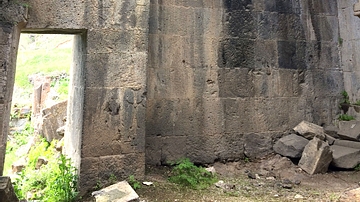
Image
Interior of Arates Monastery in Central Armenia
The Arates Monastery in Armenia is built on top of a hill and overlooks the Arates tributary of the Yeghegis River. The monastery's name came from the combination of “ari” ("come" in Armenian) and “tes” ("see" in Armenian). It is likely that...

Image
Ruined Interior of Arates Monastery in Central Armenia
The Arates Monastery in Armenia is built on top of a hill and overlooks the Arates tributary of the Yeghegis River. The monastery's name came from the combination of “ari” ("come" in Armenian) and “tes” ("see" in Armenian). It is likely that...
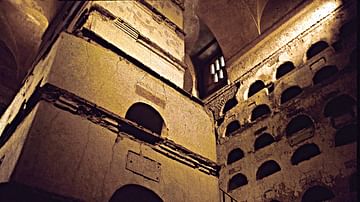
Image
Columbarium 1 at Vigna Codini: Loculi & Central Pillar
Columbarium, excavated in 1840 CE, on strip of land between Via Latina and Via Appia.
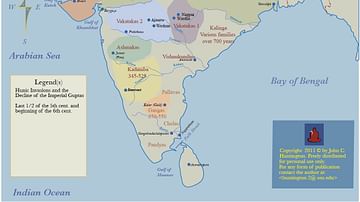
Definition
White Huns (Hephthalites)
The White Huns were a race of largely nomadic peoples who were a part of the Hunnic tribes of Central Asia. They ruled over an expansive area stretching from the Central Asian lands all the way to the Western Indian Subcontinent. Although...